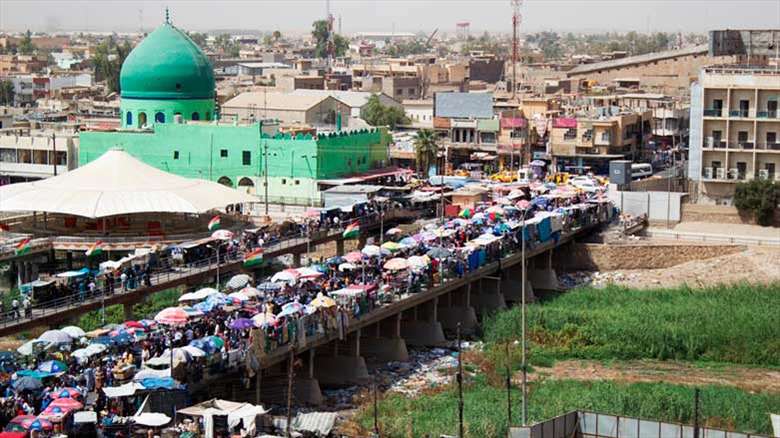Kurdistan parliament investigates 'Arabization' in Iraq's disputed territories

ERBIL (Kurdistan 24) – A group of lawmakers from the Kurdistan Region Parliament's committee on disputed territories visited areas within them to investigate claims that Kurdish residents have been the target of a campaign of “Arabization,” the term used for policies that favor ethnic Arabs to the detriment of other Iraqi ethnicities.
“It was the Kurdistan Parliament's decision to establish several committees to visit the disputed areas to investigate the recent incidents such as crop fires and attempts of enacting the Arabization process in villages with Kurdish populations,” committee member Liza Falakadin told Kurdistan 24.
Parliamentary officials announced the creation of the committee in late May in response to growing numbers of reports of such incidents.
Related Article: Kurdistan Region Parliament to form new committee on disputed areas
”In our first visit, we came to the office of the representative of the Kurdistan Parliament in Kirkuk’s [town of] Qarahanjir to meet with the people and gather the facts,” Falakadin continued.
“After the meetings, we will present our findings to the parliament which in turn will present them to the Iraqi parliament, the United Nations, and the international community for the proper action.”

Deputy Speaker of the Iraqi Parliament Bashir Haddad said in a press conference that “in Baghdad, a council for the disputed territories has been established with representatives from the UN and we expect the problems in the Kurdistani [disputed] areas to be addressed in the near future.”
Haddad, also added, “The solution to security gaps in the disputed areas is solid coordination between Peshmerga forces and Iraqi security forces.”
Iraqi forces have been in charge of Kirkuk and other disputed territories since October when they and militias from the Popular Mobilization Forces (PMF) drove Peshmerga from the province following the Kurdistan Region's independence referendum held the month before.
Since then, Kurdish residents of disputed territories have complained on multiple occasions in several areas about being pressured by Arabs to leave their homes and other property.
In late June, a spokesperson for the Kurdistan Democratic Party’s (KDP) leadership council in Kirkuk claimed that over 12,000 Arab families who occupied land in Kirkuk before 2003 were returning once again to reclaim their former lands.
Related Article: Over 12,000 Arab families set to return to Kurdish-owned areas in Kirkuk: official
According to the official, the Arab families “were given compensation in the form of lands and financial means under Article 140 of the Iraqi Constitution to return to their governorates and homes” after 2003.
“However, following the events of October 2017, they are gradually returning to Kirkuk in an attempt to occupy Kurdish lands once again.”
According to Article 140 of the Iraqi Constitution, the fate of disputed territories between Erbil and Baghdad requires a referendum in the contested areas so people can decide whether they want to be governed by the KRG or the Iraqi government. However, no such referendum has taken place despite the deadline having passed over a decade ago.
Editing by John J. Catherine
